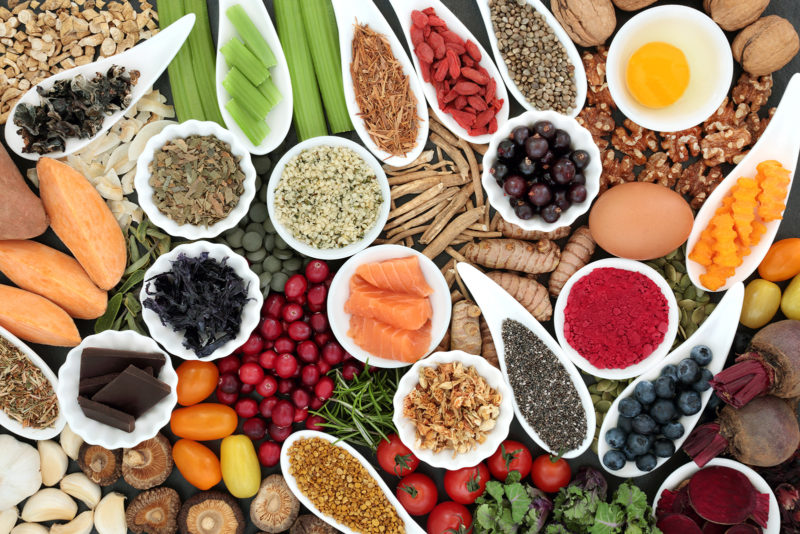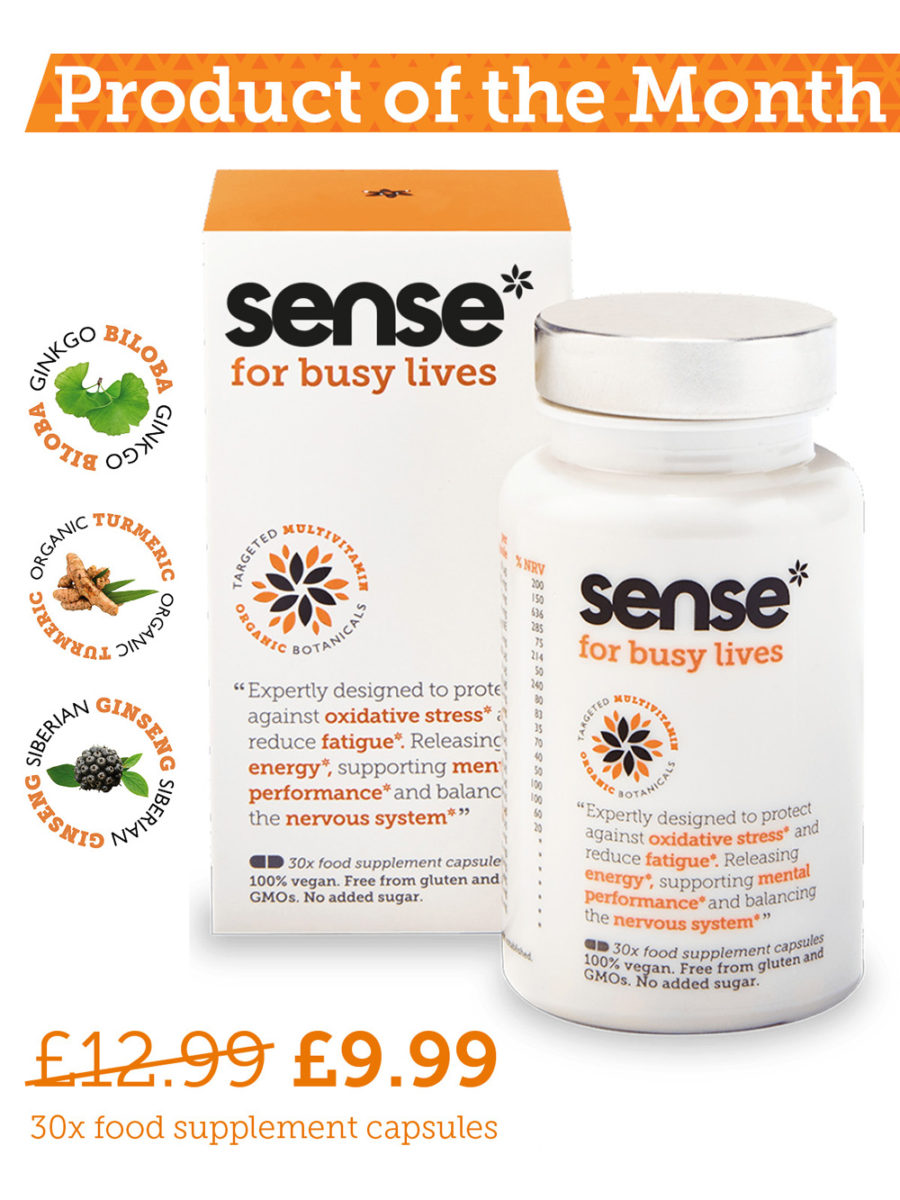
ESSENTIAL NUTRIENTS:
Essential nutrients are compounds that the body can’t make or can’t make in sufficient quantity. According to the World Health Organization, these nutrients must come from food, and they’re vital for disease prevention, growth, and good health. While there are many essential nutrients, they can be broken into two categories: macro-nutrients and micro-nutrients.
Macro-nutrients are eaten in large amounts and include the primary building blocks of your diet — protein, carbohydrates, and fat — which provide your body with energy. Micro-nutrients such as Vitamins and minerals are essential and small doses go a long way.
Vitamins & Minerals
Vitamins and minerals are essential nutrients because they perform hundreds of roles in the body. There is a fine line between getting enough of these nutrients (which is healthy) and getting too much (which can end up harming you). Eating a healthy diet is consider by some the way to get sufficient amounts of the vitamins and minerals you need but due to growing methods, soil depletion and poor quality food on a macro level and strict dieting, poor appetite or changing nutritional needs on a micro level, we often don’t get enough of these directly from our food.
In fact, 90% of people don’t get the recommended amount of essential nutrients from food alone.
Every day, your body produces skin, muscle, and bone. It churns out rich red blood that carries nutrients and oxygen to remote parts of the body, and it sends nerve signals skipping along thousands of miles of brain and body pathways. It also formulates chemical messengers that shuttle from one organ to another, issuing the instructions that help sustain your life. But to do all this, your body requires some raw materials….namely nutrition.
Trying to keep track of what all these vitamins and minerals do can be confusing. Read enough articles on the topic, and your eyes may swim with the alphabet-soup references to these nutrients, which are known mainly be their initials (such as vitamins A,B,C,D,E, and K—to name just a few)..
VITAMINS
Vitamins are vital for preventing or treating disease and staying healthy. The body needs these micro-nutrients to support its functions. These include at least 30 vitamins, minerals, and dietary components that your body needs but cannot manufacture on its own in sufficient amounts. They help shore up bones, heal wounds, and bolster your immune system. They also convert food into energy, and repair cellular damage. Vitamins are essential for healthy vision, skin, and bones. They may lower the risk of lung and prostate cancer, and they’re powerful antioxidants. Vitamins like vitamin C boost the immune system and help the body heal.

MINERALS
Like vitamins, minerals help support the body and its functions. They’re essential for many things, including building strong bones and teeth, regulating your metabolism, and staying properly hydrated. Some of the most common minerals are calcium, iron, and zinc .In addition to strengthening bones, calcium helps with nerve signal transmission, maintaining healthy blood pressure, and muscle contraction and relaxation. Iron supports your red blood cells and hormone creation, while zinc boosts your immune system and wound healing.
PROTEINS
All of your hormones, antibodies, and other important substances are composed of protein. Protein is not used to fuel the body unless necessary. Proteins are made up of different amino acids. While the body can create some amino acids on its own, there are many essential amino acids that can only come from food. You need a variety of amino acids for your body to function properly.
CARBOHYDRATES
Don’t let the low-carb craze fool you. Carbohydrates are necessary for a healthy body. Carbs fuel your body, especially your central nervous system and brain, and protect against disease. Carbohydrates should make up 45 to 65 percent of your total daily calories but there are good ways and bad ways of getting them. Today’s Western diet on the whole has promoted many of the bad forms of carbohydrate and only now are we learning about how bad some of the forms of carbohydrate may be such as processed sugar.
FATS
Research has shown that healthy fats are an important part of a healthy diet. According to Harvard Medical School, fat supports many of your body’s functions such as vitamin and mineral absorption, blood clotting, building cells, and muscle movement. Yes, fat is high in calories, but those calories are an important energy source for your body.
Dietary Guidelines across the globe suggest that 20 to 35 percent of your daily calories come from fat, but the World Health suggests keeping it under 30 percent of your calories. Including healthy fats in your diet can help you to balance your blood sugar, decrease your risk of heart disease and type 2 diabetes, and improve your brain function. They’re also powerful anti-inflammatories, and they may lower your risk of arthritis, cancer, and Alzheimer’s disease.
FIBRE
Dietary fibre refers to a group of substances in plant foods which cannot be completely broken down by human digestive enzymes. This includes waxes, lignin and polysaccharides such as cellulose and pectin. A low fibre intake is associated with constipation and some gut diseases such as bowel cancer. A high fibre diet can help reduce cholesterol, reduce the risk of diabetes and can help protect against overweight. Some fibres are specifically needed to maintain a healthy gut microbiome, building up good bacteria.

WATER
You can go for weeks without food, but you can’t last more than a few days without water. Water is absolutely crucial for every system in your body. It’s also the main thing you are made of. About 62 percent of your body weight is water. Water improves your brain function and mood. It acts as a shock absorber and a lubricant in the body. It also helps flush out toxins, carry nutrients to cells, hydrate the body, and prevent constipation.Even mild dehydration can make you feel tired and impair your concentration and physical performance. Not technically a nutrient, water is absolutely essential!
BOTANICALS
The use of herbs and spices has been incredibly important throughout history. Many were celebrated for their medicinal properties, well before culinary use. Modern science has now shown that many of them do indeed carry remarkable health benefits.
Top 5 Herbs & Spices
Here are 5 of the world’s healthiest herbs and spices, supported by research that have been used by sense*:
1) Turmeric contains curcumin, a compound with powerful anti-Inflammatory effects
2) Pepper contains capsaicin, which helps reduce appetite and may have anti-cancer properties.
3) Ginger is a popular spice used in several forms of alternative medicine. Ginger can treat nausea caused by morning sickness, chemotherapy and sea sickness and has anti-inflammatory properties.
4) Cinnamon Lowers blood sugar Levels and has a powerful anti-diabetic effect
It contains a compound called cinnamaldehyde, which is responsible for cinnamon’s medicinal properties.
5) Garlic can combat sickness, acts as an anti-microbial and Improves heart health. We now know that most of these health effects are due to a compound called allicin.
SUPERFOODS
Superfoods are foods that have a very high nutritional density. This means that they provide a substantial amount of nutrients and very few calories. They contain a high volume of minerals, vitamins and antioxidants. Antioxidants are natural molecules that occur in certain foods. They help neutralise free radicals in our bodies. Free radicals are natural by-products of energy production that can wreak havoc on the body. Antioxidant molecules decrease or reverse the effects of free radicals that have close links with the following health problems: heart disease, cancer, arthritis, stroke, respiratory diseases, immune deficiency, emphysema, Parkinson’s disease. Some of the best known superfoods: cacao, spirulina, chlorella, garlic, broccoli, spinach, blueberry, acai berry, baobab, maca, lumuma and beetroot powder. See HERE for the TOP 20 INGREDIENTS USED IN SENSE*
CONCLUSION
It is dangerous to exclude any micro or macro nutrient groups for your diet particularly when food no longer contains all the nutrients that you need. Supplementation is intended to bridge the nutritional gap, so that we maintain the proper balance of nutrients from food and supplementation. This will enhance the nutrient density of your diet and make sure you are obtaining the right amount of nutrients tailored to your dietary needs.
As part of the 360 approach taken by sense* we have included in the formulas every nutrient group mentioned above. Many of the botanicals and superfoods that sense* uses have been traditionally used across different cultures throughout history to improve health. While the human body can live without these the inclusion of these through nutrition maximises well-being and enables the human body to flourish.
Author: Dimitra Sentelidou MSc
Accredited Nutritionists
See Also: Ask the Nutritionist – Click Here

